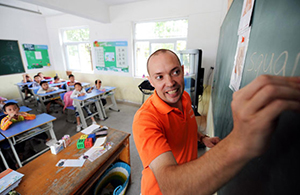The changing ground of human rights
(China Daily) Updated: 2012-12-14 08:04Biotechnology a challenge to human rights
Biotechnology, especially genetic testing and DNA sequencing, has given rise to a series of ethical issues that need urgent attention: the conflict between a woman's right to abortion and a fetus' right to life; the conflict between the right of people with incurable diseases to choose euthanasia to die with dignity and the oath doctors take to treat and save patients; the conflict between the right of every citizen to keep their personal information secret and the right of scientists to share research data and information; the conflict between patients' right to receive genetically modified organisms and human genes and cells and the right of the natural owners of these organisms, genes and cells; and the conflict between the great medical breakthrough provided by human embryonic stem cells and the practice of depriving embryos the right to life.
Biotechnology offers human beings huge profits and, at the same time, is profoundly influencing their recognition of themselves and their circumstances.
As Bertrand Russell said, what we know is quite few and reasonability is limited; the more people know through reasonability, the more they do not know. No matter how biotechnology is developed, it will only solve the reality problem, namely, the question of "what". Science cannot provide any answer to the issue of values.
The more biotechnology develops, the more prominent the question of "what is it" will become. Human rights, or human dignity as the core of modern legal values, are the fundamental norms to tell good from evil.
In the past 200 years, attracted by the spirit of human rights, people signed social agreements to control the barbaric acts of governments, making the modern law-based government possible. Today, facing the unscrupulousness of bioscience, human beings should admit their own vulnerability and reach new agreements with science through global efforts in order to march forward confidently under the restraint of limited reasonability.
Qi Yanping is dean of Law School, Shandong University.












